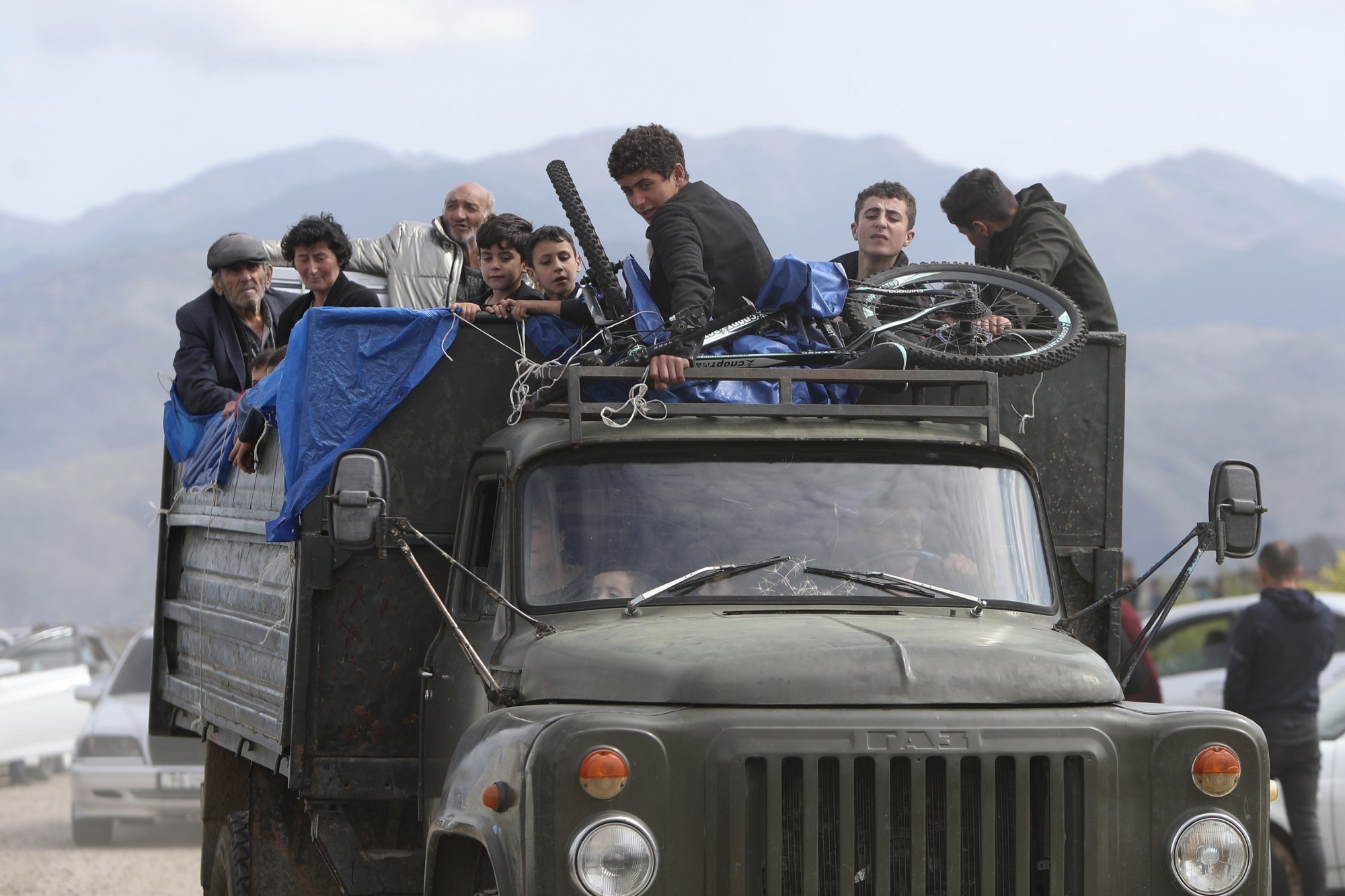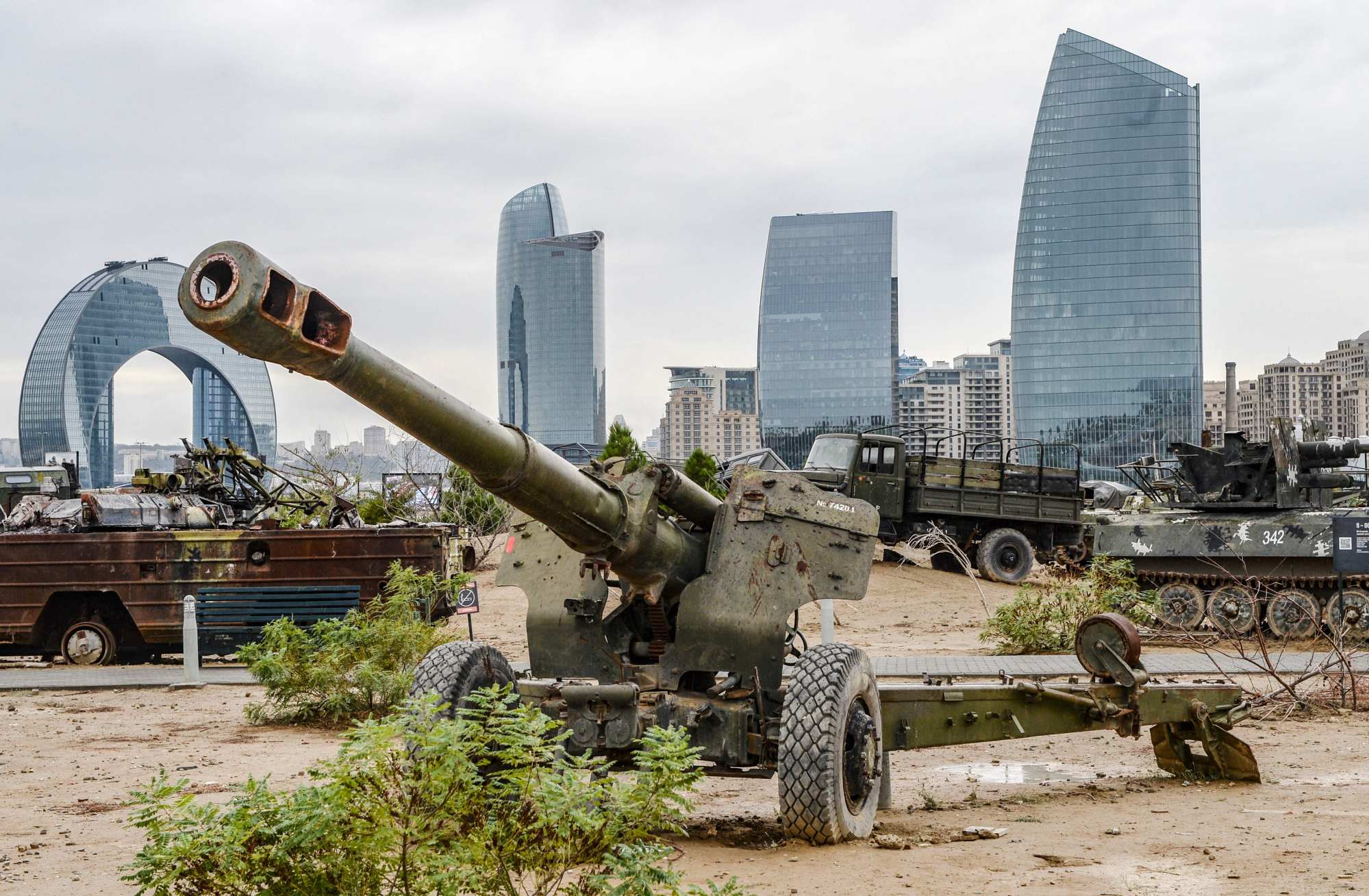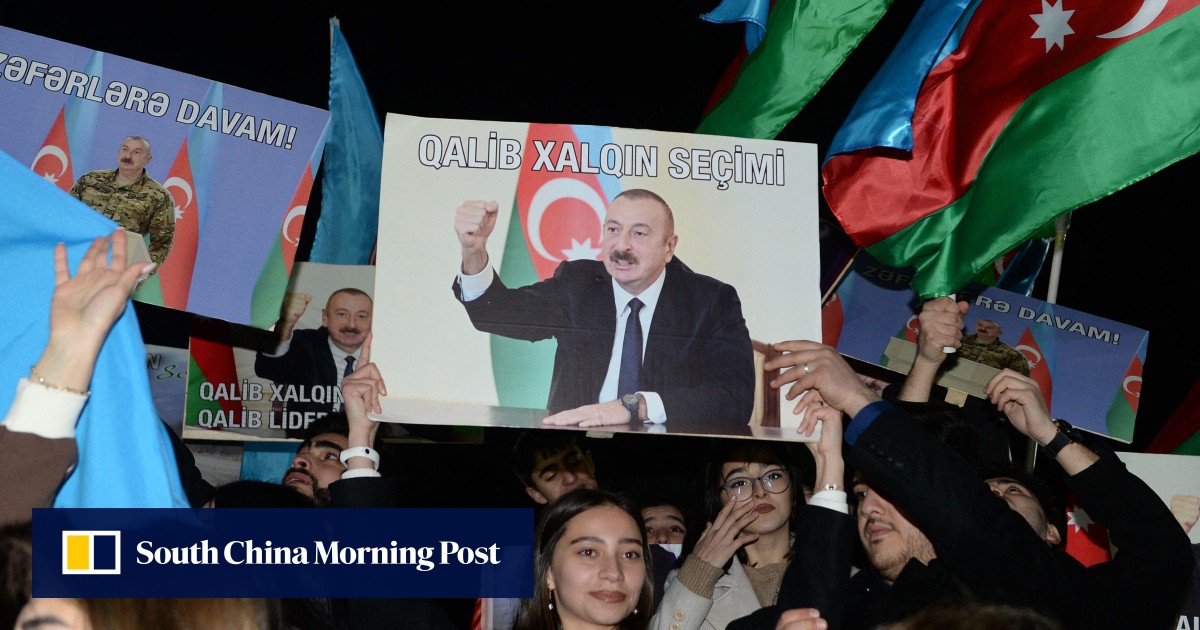Turnout was 67.7 per cent, he added.

Aliyev was heralded at home after his troops recaptured in September the breakaway Nagorno-Karabakh region from Armenian separatists who had controlled it for decades.
But the oil-rich nation’s main opposition parties boycotted the vote, which one opposition leader, Ali Kerimli of the Popular Front party, called an “imitation of democracy”.
Armenian PM proposes non-aggression pact to Azerbaijan
Armenian PM proposes non-aggression pact to Azerbaijan
“There are no conditions in the country for the conduct of free and fair elections,” he said.
The six other candidates who were running were little-known and had praised Aliyev as a great statesman and commander-in-chief since he announced the election in December, a year ahead of schedule.
Singing patriotic songs, several thousand Aliyev supporters gathered on Wednesday evening in the streets of central Baku to celebrate his re-election.
Some demonstrators held signs that read “Karabakh’s liberator” and “We are proud of you!”
The president and first lady Mehriban Aliyeva went to Karabakh on Wednesday to cast their ballots in the region’s main city of Khankendi.
For the first time in Azerbaijan’s post-Soviet history, 26 polling stations opened in Karabakh.

The enclave has been largely deserted after its entire ethnic-Armenian population – more than 100,000 people – fled to Armenia after Baku’s takeover.
Last month, Aliyev called the Karabakh victory “an epochal event unparalleled in Azerbaijan’s history”.
“The election will mark the beginning of a new era,” he said, with the country holding the presidential vote on all its territory for the first time.
Supporters have praised Aliyev for turning a country once thought of as a Soviet backwater into a flourishing energy supplier to Europe.
But critics say he has crushed opposition groups and suffocated independent media.
In recent months, Azerbaijani authorities have intensified pressure on independent media outlets, arresting several critical journalists who had exposed high-level corruption.
On Tuesday, Amnesty International said: “The escalating crackdown by Azerbaijani authorities ahead of the elections is not just an attack on individual rights, it’s a widespread, coordinated assault on civil society and the rule of law”.
Aliyev, 62, was first elected president in 2003 after the death of his father, Heydar Aliyev, a former KGB officer who had ruled Azerbaijan since 1993.
Azerbaijan must let ethnic Armenians return to Nagorno-Karabakh: World Court
Azerbaijan must let ethnic Armenians return to Nagorno-Karabakh: World Court
He was re-elected in 2008, 2013 and in 2018, with 86 per cent of the votes.
All the elections were denounced by opposition parties as rigged.
In 2009, Aliyev amended the country’s constitution so he could run for an unlimited number of presidential terms, a move criticised by rights advocates who said he could become president for life.
In 2016, Azerbaijan adopted controversial constitutional amendments that extended the president’s term in office to seven years from five.
He then appointed his wife as first vice-president.
Around six million voters were registered for the election, which was being monitored by observers from the Organisation for Security and Cooperation in Europe (OSCE).

